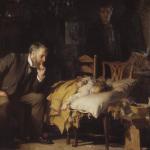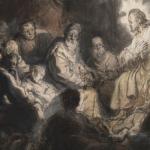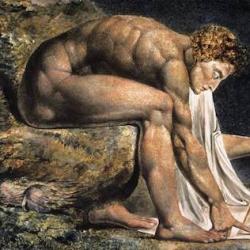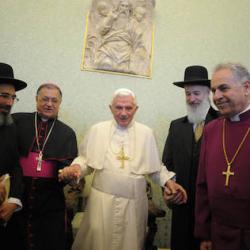John Hedley Brooke (Science and Religion, 44-45) summarizes the argument of JW Draper’s 1875 History of the Conflict between Religion and Science:
“The history of science, he wrote, is a narrative of the conflict of two contending powers, the expansive force of the human intellect on one side and the compression arising from traditional faith, and human interests, on the other. Draper was an English scientist who became the first president of the American Chemical Society. Living through the post-Darwinian debates, he invariably took up the cudgels on behalf of scientific rationalism. He had even spoken – interminably – at the famous meeting of the British Association for the Advancement of Science, held at Oxford in 1860, when Huxley allegedly scored his victory over Bishop Wilberforce with the retort that he would rather have an ape for an ancestor than a man who used his privileged position to pronounce on matters he knew nothing about. For Draper, the Darwinian debates had focused attention on a crucial issue – whether the government of the world is by incessant divine intervention or by the operation of unchangeable laws.”
Brooke observes that Draper’s narrative was far from disinterested: “he had an obvious target,” namely, the Catholic church.
“Whereas science had been unstained by cruelty, hands in the Vatican had been steeped in blood. Draper’s history was a diatribe against the Roman Catholic Church. It reflected in part his reaction to the encyclical Quanta cura of 1864. The accompanying ‘Syllabus of errors’ had deemed erroneous the belief that public institutions devoted to teaching literature and science should be exempt from the Church’s authority. Liberal protests notwithstanding, it had been announced in 1870 that the pope, speaking ex cathedra, is gifted with infallibility when defining doctrines to do with faith and morals. Such developments were, for Draper, red rag to a bull – hence his recourse to history for the counterattack. A parade of martyred scientists would show by whose hands the real errors had been committed.”
Draper’s account is continuous with seventeenth century screeds against “priestcraft.” Protestant anti-Catholicism has not only distorted theology and church history. It’s distorted accounts of the history of science, and given an edge to scientistic hostility to religion.
















